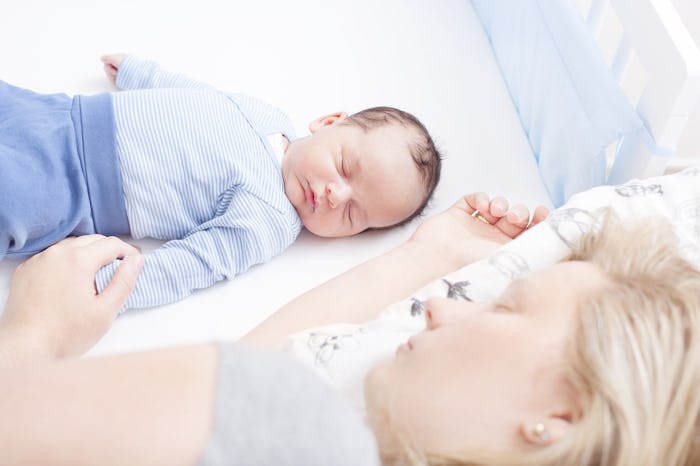Life

9 Ways Co-Sleeping Affects Your Child's Personality
There are two main schools of thought when it comes to co-sleeping: "We would never let our kids sleep in our bed" and "We sleep with our kids every night." Whether or not you have a family bed, you have probably wondered about the ways co-sleeping affects your child's personality. Will your children become overly clingy and have a hard time becoming independent if they sleep in your bed?
Well-meaning friends and relatives have long warned new parents to avoid giving into a child who wants to sleep in their bed. In fact, even though my husband and I loved co-sleeping, we often lied about where our children slept out of fear that our friends would judge us, or reprimand us for potentially psychologically damaging our kids. Funny enough, years later we learned that almost all of our friends had also been bed sharing. Today, co-sleeping is much more common and not considered nearly as "crunchy" as it had been in the past. As far as psychologically damaging? That myth is on its way out, as well.
According to an article in Psychology Today by clinical psychologist and sleep disorder specialist Michael J Breus, a 2011 study showed that bed-sharing does not negatively affect cognitive or behavioral development in young children. This is good news if you are a concerned co-sleeper.
Here are some more ways co-sleeping may affect your child's personality.
1They'll Have Higher Self-Esteem
According to Healthy Child, studies have found that males who co-slept with their parents between birth and age five had higher self-esteem and experienced less guilt.
2They'll Be More Open To Affection
Sleeping with your parents as a child may be the reason you grew up to be a hugger. The same study by Lewis and Janda found that females who co-slept during childhood experienced less discomfort about physical contact and affection as adults.
3They'll Be Better Behaved In School
According to Dr. Sears, children who co-sleep are often better behaved in school. Healthy Child noted that in a study of parents on military bases by J.F. Forbes, co-sleeping children received higher evaluations from their teachers than children who slept alone.
4They Become Independent Sooner
Many parents worry that co-sleeping will cause their children to be dependent on their parents longer, however, According to the University of Notre Dame's Mother-Baby Behavioral Sleep Lab, co-sleeping produces independence and self-sufficiency in a child. Psychology Today wrote that co-sleeping doesn’t stand in the way of your children developing their own, independent, healthy sleep habits.
5They Have Fewer Psychological Problems
Dr. Sears also referred to the Forbes study which found that children who co-sleep also exhibit fewer psychological problems. More specifically, co-sleeping was less frequent for children in the psychiatric sub-population which was studied.
6They Have A More Positive Attitude
Children who sleep in their parents bed fall asleep more quickly and sleep more peacefully according to Dr. Sears. These children wake up better rested and tend to have more positive attitudes than children who sleep fitfully throughout the night.
7They Are Happier
The University of Notre Dame also noted an English study by P. Heron which showed that children who never slept in their parents' bed tended to be less happy, they exhibited a greater number of tantrums, and were more fearful than children who consistently co-slept.
8They Have Less Anxiety
Sleeping in their parents' bed can make children feel less worried or frightened. Kids who co-sleep exhibit less long-term sleep anxiety according to Dr. Sears. The Lewis and Janda study also pointed out that boys who co-slept experienced less anxiety than those who slept alone.
9They Feel More Accepted
Kids who co-sleep, according to Healthy Child, feel more accepted by their parents. The children feel as though their parents are in-tune with their needs and this contributes to a positive relationship with the child